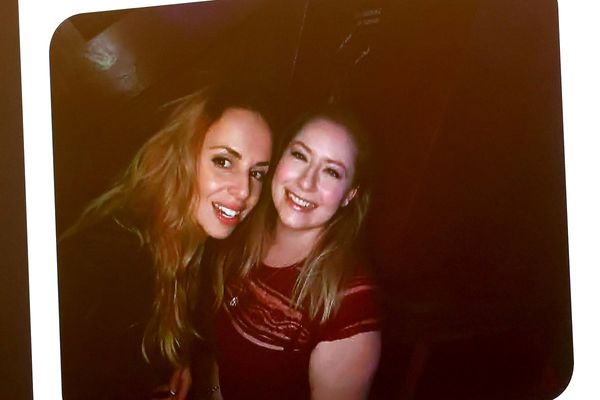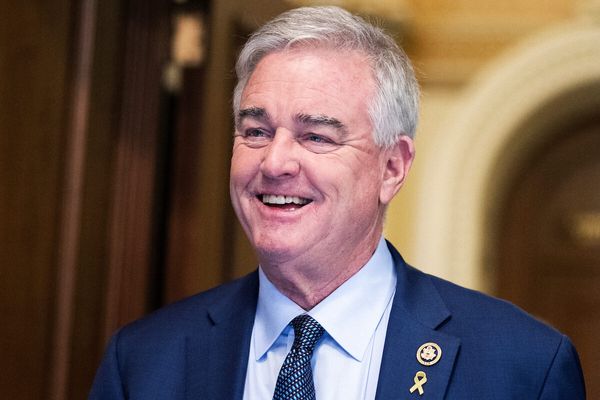
I should not have been surprised by what the audiologist was saying to me and my husband. Hearing loss runs in my family. My mother was profoundly deaf, and so were my grandfather and great uncles. And yet when we were told our daughter had a moderate to severe hearing loss and would have to wear hearing aids for the rest of her life, I felt as if I had been hit by a bus. I was dead.
It was 1996, and we were sitting in a spartan doctor’s office in downtown New York. It wasn’t a warm and cozy environment like our paediatrician’s – there were no pictures of dinosaurs on the walls or puzzles strewn about. No low, cushioned seats for the kids to sit on. The consulting room was dark, with one blinking fluorescent light, a metal desk and a couple of wooden chairs. The centre was a not-for-profit that cared for those with hearing loss and deafness. What they lacked in decor they more than made up for in their mission.
We were here because there was something about Zoe, our two-year-old daughter, that gave me pause. At home she was the life of the party but whenever we left the house she became painfully shy. This is not exactly a textbook symptom of hearing loss, but given my family history I knew it could be.
My husband and I were both seated at the desk, and Zoe was sitting on my lap. In this lifeless room she was a burst of colour. Dressed in her signature style of head-to-toe pink, she was wearing one of the three dresses she cycled through every week, accessorised by an oversized bedazzled bow that sparkled every time she twirled (which was constantly). She was adorable.
As I watched the audiologist fit her with the kind of behind-the-ear aids my grandfather wore, I cried. She was so little and these beige medical devices were enormous. I am ashamed to admit it, but all I could think at that moment was: “Who will ever take Zoe to the prom with these big clunky things sticking out of her ears?”
The audiologist saw my face and said a profound thing to me that has stayed with me through the years: “The hearing aids get smaller as the child gets bigger.”
Back then I had no idea what she was talking about – or what a salve this advice would come to be. My head was spinning as I imagined all the kids pointing to Zoe’s ears and wondering what those ugly things were – they were like a billboard for Zoe’s disability. I worried she would become self-conscious and ultimately embarrassed about who she was. As if I had a crystal ball, I envisioned her as an insecure adult unable to form meaningful relationships.
The doctor held the hearing aids up to her own ears and said: “See? Not so big.” And I had to admit she had a point. Then she gave me a mirror and suggested I hold them up to my own ears, and I was even more convinced that she was right.
I stopped fidgeting and tapping my foot.
But she wasn’t done.
She opened her desk drawer and pulled out several pairs of hearing aids. She lined them up, the oldest model to the latest, and explained: “This is how far the technology has come in just four years.” I was shocked at how much smaller the most recently designed aids were. But it wasn’t only size that differentiated them: the newest ones looked, well, cool. Like something Apple would have designed.
“I have no doubt the technology will keep evolving,” she reassured me.
The doctor’s words rang true both literally and metaphorically. Zoe would grow up and those clunky things behind her ears would become almost unnoticeable. But even more, the big bad thing I thought would define my daughter would also fade into the background. Zoe would always be hard of hearing, but as I came to terms with her hearing loss, it became clear that would only be one data point in her life. She would also be hilarious, mathematical and steadfast in her belief that Love Actually is the best movie ever made.
Over the years, that conversation with the audiologist became a reminder that we had done right by our daughter. Fitting her at age two with big clunky hearing aids might have felt like a loss at the time, but early intervention meant Zoe did not become speech delayed and miss out on crucial developmental and socialisation milestones.
Sixteen years after I sat in that office chair wondering if anyone would ever take my daughter to the prom, Zoe was stepping into a long pink gown and fluorescent pink heels on her way to the dance. The truth is it was never about the prom but about wanting Zoe to fit in. Her doctor’s words spoke to the moment, but they reverberated for years to come. Whenever I catch myself jumping to conclusions or pretending to know how others will react, I stop and remember what a wise, kind audiologist once said: “The hearing aids get smaller as the child gets bigger.” Nothing is static and everything is in a constant state of change. Even this imperfect mum.
Helene Rosenthal lives in New York City and writes about families, friendships and relationships







